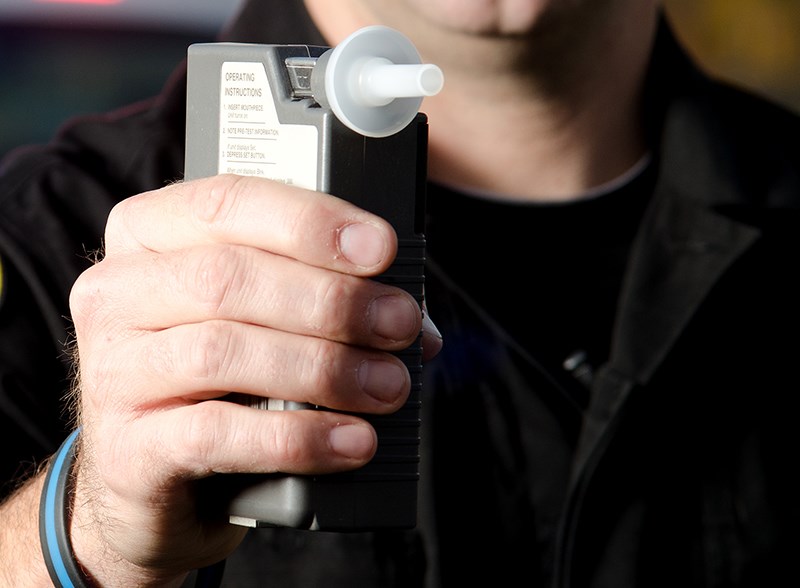For the third time in four months, law-enforcement officers on Vancouver Island have acted in a troubling manner. In February, Norma McLeod, a 76-year-old cancer survivor, was pulled over by a police cruiser at the Hillside Centre in Victoria. She had been seen leaving a nearby liquor store with a bag in her hand.
Questioned by an officer, McLeod was unable to provide an adequate breath sample.
She has a prosthesis in her mouth, required after surgeons removed the roof of her mouth, and suffers from chronic obstructive lung disease.
Although there was no evidence she had alcohol in her system, her licence was suspended on the spot and her car seized.
Faced with multiple fines and penalties, she has appealed to the sa���ʴ�ý Supreme Court. That case is pending.
Also in February, a 68-year-old Colwood woman with a perfect 40-year driving record, Inger Forsyth, was arrested and here too, could not provide a usable breath sample.
She has bronchitis and was on antibiotics.
Forsyth’s car was impounded and she was left alone at the side of the road, sick and improperly dressed for the cold winter weather. Her prohibition was subsequently overturned by an adjudicator with Road Safety sa���ʴ�ý
Then, last month in Nanaimo, a local woman, Lee Anne Lowrie, was confronted by five RCMP officers at her sister’s house, a show of force that seems wildly disproportionate.
They told her they had received an anonymous tip that she had consumed “multiple alcoholic beverages” at a restaurant, then driven away. She was asked to provide a breath sample, and failed the test.
Her truck was impounded for 30 days, she lost her licence for 90 days, and faced penalties totalling $1,680.
Yet, according to Lowrie, she had several drinks at her sister’s house over the space of two hours before the officers arrived.
It’s hard to see how an impairment test administered in those circumstances could yield decisive proof that she had been drunk while driving.
The officers reported that her words were slurred, and that she had not requested a second test. But a video recording made by Lowrie allegedly shows those claims to be false. Like Forsyth, Lowrie’s prohibition and fines were later overturned.
It must be said that the facts reported here are the defendants’ version of events. The police may well have a different view of each case.
Nevertheless, it does appear something has gone badly wrong.
Last December, the federal government introduced new road-safety provisions that permit police officers to pull over drivers, even if they have no reason to suspect impairment.
Those provisions also allow law enforcement staff to issue immediate roadside prohibitions, levy fines and impound vehicles on the spot. All of this can be done at the officer’s discretion.
In one respect, Ottawa’s intent was admirable. While traffic deaths related to alcohol consumption have been falling for many years, a 2016 study found that sa���ʴ�ý ranked worst among 19 wealthy countries in drunk driving fatalities.
Any reasonable steps to lessen the carnage are therefore welcome.
It must also be said that the vast majority of police officers are conscientious members of the community with a strong commitment to professionalism.
Nevertheless, these recent legislative changes have several worrying aspects.
First, they effectively reverse the common law understanding that people are considered innocent until proven guilty.
When drivers can be pulled over in a completely random manner and be forced to submit to a sobriety test, the presumption of innocence is gone.
Again, these new policies elevate police officers to the equivalent of prosecutor, judge and jury, all in one. They have become, in practice, a law unto themselves. But that is an invitation to overzealous behaviour.
It’s true that drivers who believe they have been unfairly treated can appeal, either to an adjudicator or to the courts.
But both cost money in the form of legal fees. And even if a favourable judgment is rendered, it cannot undo the harm caused by the interim loss of a driver’s licence and the impounding of a vehicle.
It does appear that parliament has upset the delicate balance between the rights of individuals, and the need for public safety. If abandoning a sick, elderly woman at the side of the road is the kind of thing we are to expect, these new laws go too far.



